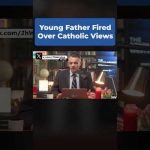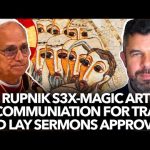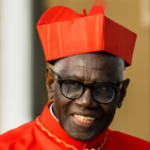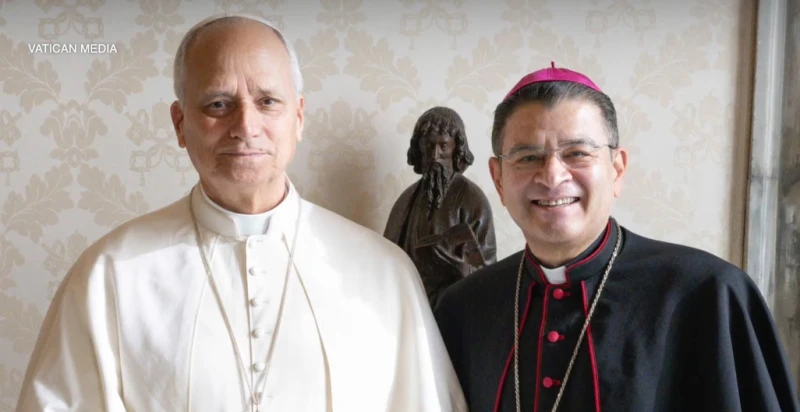
Pope Leo XIV meets with Bishop Rolando Álvarez on Nov. 13, 2025. / Credit: Vatican Media
ACI Prensa Staff, Nov 25, 2025 / 07:00 am (CNA).
Former Nicaraguan political prisoner Félix Maradiaga was recently elected president of the World Liberty Congress (WLC). In an interview with “EWTN Noticias,” the Spanish-language broadcast edition of EWTN News, he analyzed the “silence” of the Catholic Church in Nicaragua, which is under persecution by the dictatorship of President Daniel Ortega.
Maradiaga, who is also president of the Foundation for the Freedom of Nicaragua and holds a master’s degree in public administration from Harvard University, now leads a global organization — the WLC — that promotes democracy, human rights, and freedom, especially in the more than 60 countries under authoritarian regimes, seeking to coordinate opposition movements and defending religious freedom as an essential part of its agenda.
In Nicaragua, he warned, “there is silence because the dictatorship is very good at achieving censorship. There is transnational repression, which is the perverse methodology of dictatorships to not only censor, silence, and murder within their borders, but to do so outside their borders as well.”
“We saw, for example, the recent assassination of retired Nicaraguan Army Major Roberto Samcam in Costa Rica, the threats against priests who are in exile, that if they speak out, if they express their opinions, then there will be consequences for their brothers in the faith inside Nicaragua. And that has generated a climate of censorship where those in exile cannot speak because they put their own families at risk,” Maradiaga charged.
Martha Patricia Molina, author of the report “Nicaragua: A Persecuted Church,” which in its latest edition from August of this year denounced the prohibition of more than 16,500 processions in the country, said something similar to EWTN News at the time.
Catholic priests “are prohibited from making any complaints, and if by chance any aggression is exposed in the media, then the [dictatorship] simply denies it,” the author explained.
Furthermore, “the laypeople are terrified that members of the Citizens’ Power Council and the paramilitaries, which are organizations affiliated with the dictatorship, will harm them if they decide to speak out,” which is compounded by the fact that there are no independent media outlets in Nicaragua.
Duty of the laity and ‘dilemma’ of the Church in Nicaragua
“And now I speak as a Catholic: The responsibility of committed laypeople is to speak for our brother priests who cannot speak. What has happened in Nicaragua is a terrible censorship,” Maradiaga lamented in the interview with EWTN News.
“And finally, the Church faces a dilemma. It has to continue exercising its pastoral role within Nicaragua, a pastoral role that involves preaching the Gospel of Christ to all people. And that is what puts the Catholic Church in a dilemma,” he added.
However, Maradiaga highlighted as signs of hope that Pope Leo XIV recently met with Bishop Rolando Álvarez, who is in exile in Rome. “We believe that with the new papacy of His Holiness, Nicaraguan Catholics, the persecuted Nicaraguan Church will receive attention,” he emphasized.
Before being deported by the regime, Álvarez was detained for 17 months, first under house arrest and then in prison, charged with treason.
How does the Ortega dictatorship remain in power?
According to Maradiaga, “Daniel Ortega’s dictatorial regime has taken advantage of a world that is completely distracted and overwhelmed by a series of crises. I always say that these crises unfortunately allow dictatorships to advance more quickly.”
“Ortega has turned Nicaragua into a giant prison, he has established a system of extrajudicial killings, he continues to haul off people to prison, he has practically closed all the independent universities in the country, he doesn’t allow freedom of the press, he has forced more than 15% of the population into exile, but he does this because he has Iran, China, and Russia behind him, and therefore the democratic change in Nicaragua must be part of an international agenda for the restoration of democracy,” he explained.
“I firmly believe that striking a blow against Nicolás Maduro’s dictatorship in Venezuela, getting rid of Nicolás Maduro’s dictatorship in Venezuela, will have a direct impact on Ortega’s dictatorship,” added Maradiaga, referring to the increasingly tougher measures the Trump administration has been taking against the Maduro regime.
U.S. cracking down on illegal migration through Nicaragua
On Nov. 17, U.S. State Department spokesman Tommy Pigott said the United States government had decided to “revoke visas for individuals in Nicaragua identified as knowingly facilitating illegal immigration,” such as “owners, executives, and senior officials of transportation companies, travel agencies, and tour operators.”
“In recent years, Ortega opened a gateway for migrants. Initially for migrants from Cuba and Venezuela, but at a certain point, Ortega opened a gateway for migration from countries in Africa and Asia,” Arturo McFields, Nicaragua’s former ambassador to the Organization of American States (OAS), told ACI Prensa, CNA’s Spanish-language news partner.
“Conviasa flights began departing from Havana: Venezuela provided the Conviasa airline, Cuba provided the migrants, and Ortega provided the springboard to begin the migratory route to the United States,” he stated.
“And in these cases, all those migrants received tickets to go to Managua. And from Managua, they began a journey to the United States. This was something that enriched the regime,” McFields charged from exile.
He thus concluded: “Many migrants saw arriving in Nicaragua as a door of hope, when in reality they were subjected to all kinds of abuses and a brutal business that Ortega was running with an iron fist and with an entire structure in which he offered transportation from the airport, lodging, and a series of logistical arrangements until taking the person to the border with Honduras: It was a complete human trafficking industry.”
This story was first published by ACI Prensa, CNA’s Spanish-language news partner. It has been translated and adapted by CNA.














